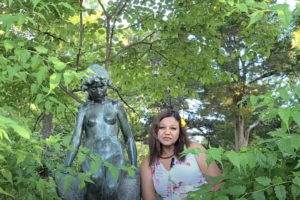Johnson will begin the process of forming his government later after he succeeds Theresa May as prime minister.
The new Conservative leader will take office on Wednesday afternoon following an audience with the Queen at Buckingham Palace.
After entering Downing Street, he is expected to announce a clutch of senior cabinet posts, including chancellor of the exchequer and home secretary.
Sources close to Mr Johnson say his top team will reflect “modern Britain”.
He is expected to use the opportunity to increase the number of women in full cabinet positions and boost the representation of ethnic minorities.
Mr Johnson won a decisive victory over Foreign Secretary Jeremy Hunt in a ballot of Tory members – gaining a 66.4% total share of the vote.
Conversations are said to be “ongoing” between Mr Hunt and Mr Johnson about the foreign secretary’s next role.
After his victory, MrJohnson said his priorities were to deliver Brexit, unite the country and defeat Labour leader Jeremy Corbyn.
The ex-mayor of London is expected to address the nation for the first time outside Downing Street at about 16:00 BST after accepting the Queen’s invitation to form a government.
That will follow Theresa May formally giving her resignation as prime minister at Buckingham Palace.
What happens when?
Wednesday 12:00 BST onwards: Theresa May takes part in her last Prime Minister’s Questions. After lunch she will make a short farewell speech outside No 10 before travelling to see the Queen to resign.
Boris Johnson will then arrive for an audience at Buckingham Palace where he will be invited to form a government.
After that he will make a speech in Downing Street before entering the building for the first time as prime minister.
Later, he will begin announcing his most senior cabinet appointments, such as chancellor, home secretary and foreign secretary, and will make and take his first calls from other world leaders.
Thursday: Mr Johnson is expected to make a statement to Parliament about his Brexit strategy and take questions from MPs. Parliament will break up for its summer recess later.
The new PM will also continue announcing his new cabinet.
Mr Johnson will inherit a wafer-thin parliamentary majority and, like his predecessor, will continue to rely on the support of the Democratic Unionists of Northern Ireland to govern.
Labour, the Lib Dems and the SNP have said they will oppose Mr Johnson over Brexit, although they have stopped short of threatening an immediate vote of no confidence.
The BBC’s political editor Laura Kuenssberg said Mr Johnson’s choice of his top team would be critical in his efforts to bring the warring factions of his party together.
Among the key decisions he faces is who will take over at the Treasury after Chancellor Philip Hammond signalled his intention to resign if Mr Johnson became leader.
Those said to be in the frame include Home Secretary Sajid Javid, former Brexit Secretary Dominic Raab and Liz Truss, Mr Hammond’s current deputy at the Treasury.
Sweeping changes are expected with a number of other ministers, including Justice Secretary David Gauke and Development Secretary Rory Stewart, having said they cannot serve under Mr Johnson due to his determination to leave the EU, with or without a deal, on 31 October.
Among those tipped for promotion include Housing Minister Alok Sharma and Local Government Minister Rishi Sunak.
Priti Patel could return to the cabinet less than two years after resigning as international development secretary over a row over unauthorised meetings with Israeli officials.
And sports minister Tracey Crouch, who quit last year in a dispute with the Treasury over fixed-odds betting terminals, could also be in line for a recall.
A source close to Mr Johnson said: “Boris will build a cabinet showcasing all the talents within the party that truly reflect modern Britain.”
Source: BBC





















